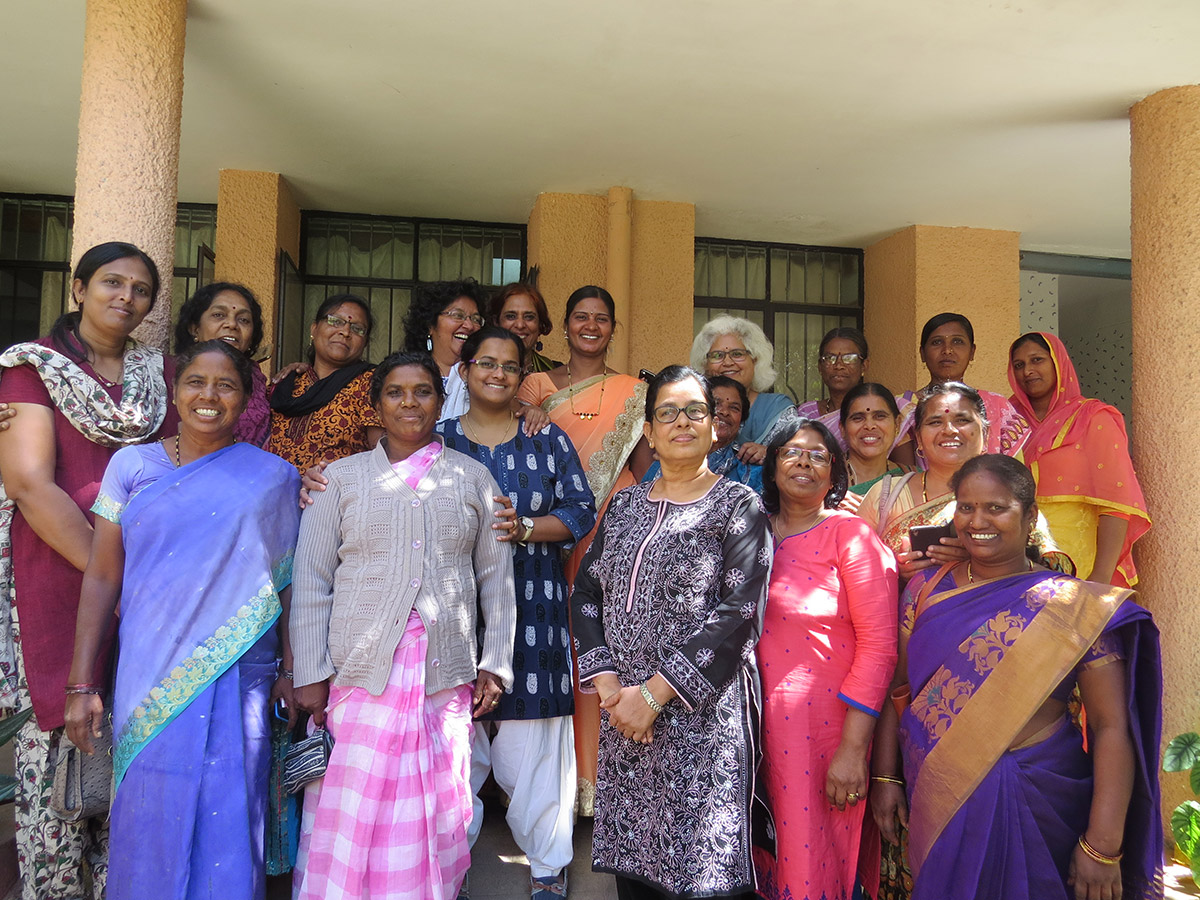
AJWS supported BPF in the project aimed at enhancing the capacity of a secretariat consisting of MS allies and BPF in seven states across the country including Assam, Bihar, Jharkhand, Karnataka, Kerala, Telangana and Uttarakhand
The purpose in this project was to create platform for dialogues amongst women federation members to build new institutional arrangements that foster autonomy and sustainability for those federations from whom the Central government support has been withdrawn. With the help of the MS experts, BPF facilitated an inclusive approach where the voice, expectations, and demands of women were brought to the forefront. New partnerships were built as well as forward-looking strategies and methods of collaboration and networking were envisioned, driven by grassroots women’s federations and collectives
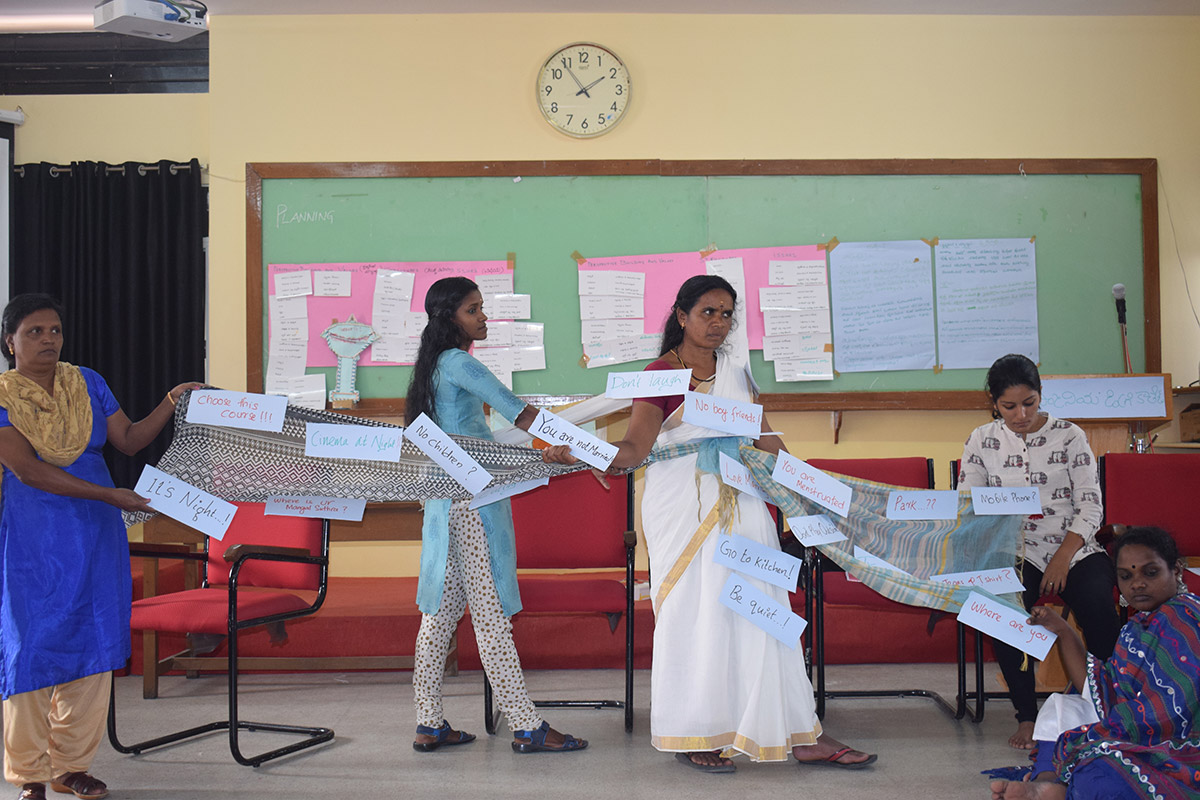
Through a project supported by AJWS, adolescent girls were mobilized and empowered in order to create a level playing field for them, and women’s collectives from four states (Assam, Bihar, Karnataka and Telangana), were strengthened towards building new, autonomous institutional arrangements
In 2017, AJWS supported dialogues with women’s federations across the country on how women could work towards strengthening their collectives to tackle issues to protect their rights. As a result of these dialogues a new intervention emerged in 2018, Building Women and Girls’ Agency Through Collectives also supported by AJWS, with the goals of Institutional Strengthening of Sanghas and federations and Empowerment of Adolescent Girls to become change agents in their communities
To facilitate the entrance of members of the transgender community into the mainstream through skill development, placement and creation of respectful workplaces
One of their most pressing needs of the transgender community is secure livelihood options. The recognition that sustainable livelihood options is a key component to improve their quality of life has gained currency. For transgender people the challenges around securing a stable livelihood, presents a set of challenges due to the deep- seated stigma and discrimination, as well as low educational levels. As an answer to this need Best Practices Foundation have adopted a new approach that focuses on the needs of the transgender community.
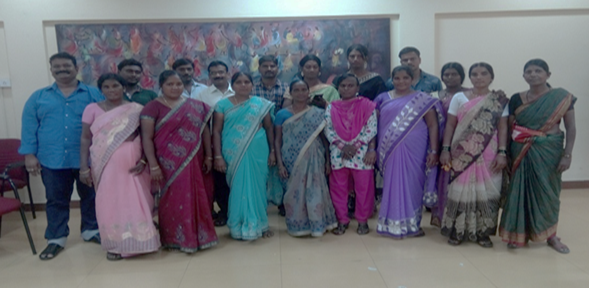
Leadership project which works with disadvantaged sexual minorities and sex workers
Through this project we were able to help the community members in Telangana develop strategies to work towards preventing violence against them. This involved working with various stakeholder – like family members, local leaders, employers etc. It also involved working with the community members to negotiate with these institutions. They also engage with local colleges and other NGOs.
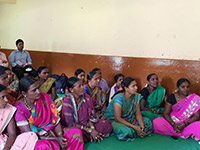
In a project supported by a Bangalore-based corporate, BPF trained women in rural Dharwad, to start their own enterprises by using its award-winning livelihood innovation Market-Oriented Value Enhancement (MOVE).
Around 62 women were mobilized for the training in MOVE, of which 32 participants successfully completed the training and 11 businesses have successfully been started. An evaluation of 50 MOVE entrepreneurs and their businesses showed a doubling of income of MOVE entrepreneurs from December 2015 to August 2017.

BPF re-modeled a social audit tool for federations to monitor progress on the sustainable development goals of education and gender equity in Assam, and fill gaps based on feedback from the federation women of Assam Mahila Samata Society and the Jan Kalyan Khanda Mahasangh.
Assam Mahila Samata Society, BPF and Jan Kalyan Khanda Mahasangh together re-worked the Data Exhibition to monitor sustainable development goals (SDGs), an innovative social audit tool for federations to monitor entitlements. The tools were deployed by women’s collectives themselves to monitor progress on the sustainable development goals of Education (SDG 4) and gender equity (SDG 5) in their local context. The data exhibition helped to spread awareness amongst the community members on the existing schemes and its benefits. It also alerted the government officials about the discrepancies in the data illustrating reach of the programmes and entitlements. The issues highlighted in the exhibition included quality education, incidence of child labour, child marriage, violations against women, wage discrimination, and access to public entitlements.
In a CSR funded project by Inflow Technologies, BPF documented and published a compendium of success stories titled ‘Stories of Triumph’ of those who had been trained in MOVE, Dharwad, India
In-depth interviews with MOVE participants in Dharwad were conducted between November 2015 and Jan 2016. This resulted in the production of a book of caselets titled ‘Stories of Triumph’. This book has twenty success stories and will be shared with funders, partners, etc. to showcase our work.
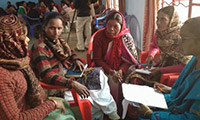
BPF collaborated with CBPS in a project aimed to strengthen women’s federations through mentoring, organising platforms for meaningful dialogues between federations and conducting regional workshops to let women reflect on their current status.
The collaboration between CBPS and BPF emanated from an alignment of their work and association with the Mahila Samakhya programme. CBPS supported two workshops; a Northern Regional Workshop held from 28-29th November at the Seva Sadan in Patna, Bihar, attended by office bearers from 13 federations across three states, namely Assam (4 federations), Bihar (6 federations) and Jharkhand (3 federations). The Southern Regional Workshop was held from the 23rd and 24th February, 2018 at Indian Social Institute, Bangalore with 33 participants representing Kerala, Karnataka and Telangana as well as partner organisations. They came together to envision the way forward collectively by building on their strengths, identifying challenges and defining their future for themselves.
Since the issues around transgender inclusion is a new one and something that does not have sufficient support, BPF is steadily networking with a range of stakeholders including corporate partners.
In order to strengthen the organisation, BPF engaged in reflection processes to understand strengths and weakness and move towards a strategic plan. We are also engaging with Praxis, a reputed organisation, to help us work out participatory monitoring systems. We have better our capacity to apply for a range of funders- including multilaterals and bigger funding agencies.
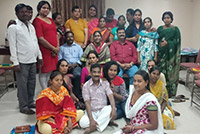
The focus of the project is on supporting collectives working with sex workers and LGBTIQ communities in rural areas at the intersections of gender and caste, towards greater voice and participation in local decision-making.
Some new areas of intervention in the project is helping people understand issues around mental health and also increase and deepen digital literacy among these populations in small town/rural Telangana, Andhra Pradesh and Karnataka. Both these needs emerged from the community and this was a response to this. The objective for the intervention on mental health is to create peer counselors who are alert to issues of mental distress including preventing suicide. The objective of the digital literacy initiative is to improve people’s ability to use the range of mobile services available but also ensure that they stay safe.
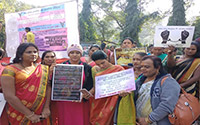
A meeting was held in Delhi on the 16th and 17th December, 2017 to building greater understanding about the parliamentary processes and specifically The Transgender Persons (Protection of Rights) Bill 2016.
The Transgender Persons (Protection of Rights) Bill 2016 which had been approved by the cabinet, was set to be discussed by the Parliament of India in its Winter Session from 15th December 2017 till 5th January 2018. Many members from transgender communities, especially those in small towns and villages, were either unaware or had little knowledge about this Bill. Lawyers and experts in this field held awareness sessions with members of the transgender community and allies.
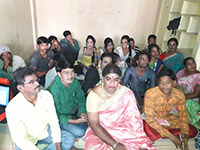
For this project, BPF conducted four modules in three days of training for the LGBT community to help them develop both leadership qualities and a vision.
Members of the LGBT community were oriented on the history of LGBTQI in India including in mythology etc. Through the training, they understood basics of the structure of government and local self-governance. They were introduced to the ideas of the importance of voting and with a basic idea of the constitution and its value as Indian citizens. The evaluation of the respective participants before and after the training pointed to an expansion of their vision into a more broad-based understanding of governance issues.
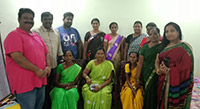
This two-year programme provided assistance to CBO members to initiate and expand their livelihood options, support to handle crisis situations along with teaching them crisis management, reduce violence, have greater confidence and a strong sense of self-worth. Support for capacity building was provided as well.
These communities have little opportunity to build their leadership. Through this project we have helped them deal with issues of confidence, team building and risk taking. Conducting four city level discussions on specific topics helped improve the depth of understanding of our understanding community needs and capacities.
Henrich Boll Foundation (HBF) commissioned BPF to find and encourage talent among the transgender community.
There are many trans people who are very talented but have little opportunity to showcase their talents. As a first step we identified 7 members of the Jogappa community who sing well and worked with them. Their singing is linked to worship and their closeness to the goddess. Through the efforts of a renowned music teacher Ms. Tara Kini, the best in their talent was nurtured and brought out. They have gained in confidence and are now playing in many more formal locations in Bangalore
An external evaluation of 50 MOVE entrepreneurs and their businesses was conducted by a USAID Fellow in December 2015.
Anomalies in the data indicated the need to correct it before analysing and writing up the report. However, this project was put on hold due to other proposals and external project deadlines. An intern from the University of California, Berkeley will be working on the correction, analysis and finalization of the report and worked closely with the BPF Dharwad team.
The programme gives financial, emotional, social and intellectual support to a small group of changemakers and gives them the freedom to pursue their ideas and vision so as to bring new voices into the movement and change the agendas that the movements are pursuing.
People from sexual minority communities have expressed a desire to grow beyond the confines of the HIV prevention and treatment service delivery paradigm. There are a number of leaders who are committed, inspired and have not had a chance to develop the ideas and approaches. There is growing dissatisfaction and frustration among grassroots activists as most of the interventions that are focused on HIV service provision are failing to deliver due to being denied their basic social entitlements. The project is supporting two women from the sex trade, to work on the welfare of other sex workers and also document their stories of struggle and perseverance.
HCF commissioned BPF to support Community Based Organisations (CBOs).
In order to build perspective and solidarity; debate, plan and measure impact with respect to crisis response strategies, we designed quarterly workshops with CBOs. The agenda for this was co- created and co-owned by the CBO members. In 2016, support was extended to 4 partner organizations; two in Karnataka and two in the newly formed state of Telangana. This resulted in an immense boost in the confidence of these community organisations to tackle crisis cases and encourage more community members to join them
A unique seminar to understand intersex issues was held on 23rd of Oct. 2017, and it brought together over 80 people including medical professionals (psychiatrists, pediatricians, counsellors) legal and policy experts, activists and importantly, intersex people themselves to highlight their challenges and to work for their place in society
Since discourse around intersex issues is still new in India, intersex persons are either bracketed with transwomen or transmen and are forced to hide their identity as intersex people. They are deprived of the appropriate help and resources that should be directed towards them leaving them isolated and uncomfortable about their identity. Since not many organisations address the 'I' in the LGBTQI movement, intersex persons often lack a social support system within the community. They often undergo non-consenting genital mutilation when the family and doctors try to determine their sex in the early stages.
To map best practices and challenges in terms of the policies which are being rolled out in various states
There has been huge advance made in country at the policy level on transgender issues often there are gaps in implementation. There are also efforts to ensure that the benefits are reaching the community members. Through a study in different states in partnership with CBOs located in the different states we are documenting these issues and practices in order to help government officials and other better implement the projects.
Supporting trans people to find employment in the formal sector
Trans people face many challenges in finding appropriate jobs in the formal sector. Therefore, this is aimed at working with the community members and to place them in corporate. This grant helped us train members of the community in basic communication and other skills.
Over the course of the last year, workshops and events with the LGBT community were held to understand the prevalent issues and explore possible solutions.
A workshop was conducted with the CBOs that we work with in September 2016 in Goa to cover issues ranging from leadership and power, basic legal strategies, accounting and building stronger management boards. We also looked at the core issue of violence and response to crises. Another workshop called ‘Redefining Inclusion’ was held on 13th August 2016 in Bangalore within the LGBTQI community. The aim was to encourage urban/privileged sub-communities to broaden their horizons of understanding and come to terms with the realities of sub-communities within the LGBTQI fold that are not necessarily privileged. It tackled real-time issues like caste discrimination, ageism, religious intolerance, non-binary identity discrimination and prejudice faced by the disabled within the community. It also unveiled the kind of crises faced by sexual minorities and the responses that were possible – showing clearly that those with privilege had access to many more options.
BPF offered a fellowship to a trans-man, KiranNayak B so that he can be an effective voice of the transgender community.
Kiran's participation in public workshops, conferences, consultations and interactions with government officials and community members has made him feel more confident about himself while presenting his work. His constant and steady engagement with the lesbian, bisexual and trans-persons in the community has borne fruit in the sense that their opinions and inputs which have been marginalized so far are being brought to the fore now managed to assume greater significance. His conversations with government officials have been productive as quite a few are also in agreement with the cause Kiran is working towards.
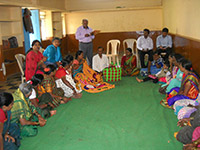
SELCO invited BPF to conduct a needs assessment for its micro-entrepreneurs who had adopted solar solutions for their businesses.
The SELCO Foundation links the benefits of sustainable energy to poverty eradication. BPF teams from Bangalore and Dharwad, engaged in data collection from Dharwad and studied and analysed this data. The final report with feedback incorporated was presented to Selco in September 2016, which made a number of recommendations for a comprehensive and inclusive approach to make a significant difference to the livelihoods of solar micro-entrepreneurs.
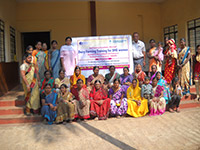
BPF was commissioned by NABARD under their Micro Credit Innovations Department to train 100 rural self-help-group women on setting up micro enterprises through BPF’s livelihood innovation - MOVE, in two villages in Dharwad district.
Four batches of training covering modules on motivation, customer orientation, business concepts, and market research were conducted in both villages. Concepts are communicated through interactive sessions, games, symbols, analysis and experiential training. The Participatory Market Analysis (PMA) forms a core module – participants are encouraged to select a business venture on the basis of market demand and competition, and only then price, promote and add value. A total of 53 trainees completed the Participatory Market Appraisal (PMA) and chose various ventures. Altogether, 21 businesses in Amminabhavi and 23 businesses in Garag were established. The CEO ZP Dharwad and DDM NABARD Dharwad visited some of the 35 businesses in February 2016, and were impressed with the quality of training and businesses started by the women.
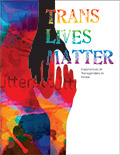
BPF was commissioned to analyse and compile data collected by Sangama (a resource centre with a focus on the rights of sexual minorities) for the Government of Kerala in order to understand the issues faced by transgenders, their needs, and establish the type of aid the government can best provide them with.
This report is pivotal because of its scale (3,618 respondents) and due to its participatory nature as it was conducted by the transgender community itself. Commissioned for the first time by a state government, this pioneering study also led to the unveiling of the only state policy on transgenders in India thus far. Recommendations emerging from the study included introducing policy changes in the Indian constitution and the healthcare system to avoid gender discrimination, increasing awareness about gender sensitisation on the needs of transgenders in institutions (health, education, etc.), introducing reservations in education and public appointments, and to establish mechanisms to identify and address any forms of discrimination or harassment. These mechanisms could include raising awareness, counselling for transgenders, as well as capacity building for teachers, counsellors and other service providers. Ensuring the right for transgenders to be included as their preferred gender in all documentation related to public facilities would go a long way in extending access of services to them. It was also recommended that for transgenders to live a life free of violence, criminal action should be taken against perpetrators, while including transgenders under laws dealing with violence.
To foster leadership, workshops were held with volunteers and members from the communities of female sex workers in Karnataka and sexual minorities in Telangana, to build their self- confidence and share with them strategies to improve their health.
Through the project, there is a deepened understanding of the problems and issues of female sex workers and sexual minorities. Budding leaders from these communities have been holding meetings with other stakeholders (such as government officials, teachers, students, etc.) to sensitise them on issues faced by their communities.
A critical examination (using secondary Literature) of the Supreme Court Judgement of April 15, 2014; the Expert Committee Report of the Ministry of Social Justice and Empowerment, and the Rajya Sabha Bill (Transgender Persons and the Rights of Transgender Person Act, 2014 was carried out along with a review of the transgender policies, schemes, etc. of five state governments.
The study focused on the main policy/legal developments at the national level and in five chosen states. While transgender people are among the most marginalised communities in India, who face violence, abuse and discrimination, there has been an opening of policy space over the past five years vis-à-vis transgender issues. Various factors have contributed to this shift- including the work of leaders, community members and other sympathisers including a more sensitised judiciary, and shifts in medical portrayal, among other things. The research method and tools were developed in consultation with community members and experts to finalise the survey instruments, IDI guides, and the identification of potential organisations to partner with.
The South-To-South HIV/AIDS Resource Exchange (SHARE) project commissioned BPF to document 20 practices covering a broad spectrum of India’s best HIV/AIDS prevention interventions.
This knowledge management product, meant for dissemination in Asia and Africa, capture key strategies that have proven to be effective, lessons learnt and roles and responsibilities of key stakeholders, government and other players in India. BPF collected and analysed primary and secondary data, interviewed doctors, experts and consultants, and wrote up each of the 20 different practices. After technical appraisals by the Government of India’s NACO advisors, feedback was incorporated, and the final approved document was designed and laid out.
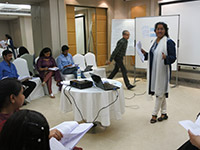
Deutsche Gesellschaft für Internationale Zusammenarbeit (GIZ) contracted BPF to engender their sanitation programme in the States of Himachal Pradesh, Maharashtra, Kerala, Chhattisgarh and Andhra Pradesh.
In February 2015, BPF conducted a workshop for the GIZ sanitation team in Delhi on the concepts of gender and sanitation, their linkages and lessons learnt from existing programmes. This workshop helped GIZ staff to identify entry points within the gender and sanitation frameworks they operate under. As an outcome of this, they evolved benchmarks and activities to operationalise gender into their work. BPF will work closely with the project level team to review the contracts between urban local bodies and private contractors to build, renovate and operate public toilets in Shimla and Tirupati from a gender perspective.
Voluntary Health Services (VHS) who appointed BPF to document three best practices for the National Aids Control Organization (NACO), Ministry of Health and Family Welfare, Government of India, on HIV prevention, care and treatment over a three-month period.
The South-to-South HIV/AIDS Resource Exchange (SHARE) project has been developed with a vision of exchanging experiences, expertise and best practices between countries in Africa and the Indian subcontinent. It is supported by the United States Agency for International Development and administered by the Voluntary Health Services (VHS). These practices will be shared with other governments interested in replicating these practices.
BPF’s baseline study conducted in July 2015 documents women’s anti-corruption initiatives in eight organisations in seven countries. BPF also submitted two separate detailed reports on DAMPA, Philippines and PDAP, Bangladesh in October 2015.
The Transparency and Accountability Initiative (T&AI), supported by UNDP GAIN and facilitated by the Huairou Commission, provides a platform for grassroots women to act as agents of change in achieving good governance. The baseline report submitted in July 2015, documents women’s anti- corruption initiatives in eight organizations in seven countries.
BPF helped assess the impact of for Huairou Commission’s (HC) Transparency and Accountability Initiative by designing the baseline for 6 organisations.
Baseline data for 6 different organizations across the world was collected between November and January 2014. Qualitative data was captured in focus group discussions with the grassroots women, along with Individual Interviews. Quantitative and qualitative baseline data for Huairou Commission’s (HC) Transparency and Accountability Initiative was analysed during February and March 2015. In the next six months, the women’s organizations will assess the impact of their corruption initiatives and this data will be presented in the end of project report in December 2015.
Training sessions on women and gender issues were conducted in order to sensitise organizations to consider providing jobs to the transgender community members and thereby helping them join the mainstream.
The transgender community has very few employment opportunities and this is a major need. Corporate organisations in Karnataka have been helped to look at issues of diversity and inclusion. Sensitivity to the issue of transgenders has increased tremendously in the 15 organisations who participated. Three trans-people have been placed in jobs.
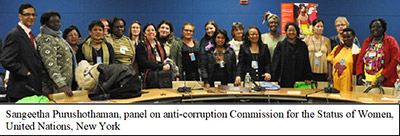
BPF, along with the Huairou Commission, was invited by the United Nations Development Programme (UNDP) to design the first-of-its-kind online course for UNDP staff, on the ways in which they can engender their anti-corruption and development programmes, with the aim to familiarise staff with grassroots women’s articulations of corruption, many of which exceed or deviate from mainstream conceptions of the term.
The course provides a clear understanding of basic concepts surrounding gender and anti- corruption, the impact of corruption on grassroots women, and the strategies developed by women’s groups to fight corruption, as well as concrete case-studies of women’s anti-corruption initiatives from Nepal, Nicaragua, and Uganda. It also provides the legal and policy frameworks that shape the UNDP’s work on both gender and corruption. It introduces staff to pioneering anti-corruption work being conducted by women at the grassroots level, in order to create synergies between grassroots movements and UNDP anti-corruption programming. The goal of the course is to prepare UNDP staff to begin a process of co-creating and designing anti-corruption initiatives with grassroots women’s groups.

The focus of the research is to examine the gender gaps within the food supply chain and the factors that influence them including ground realities and challenges faced by women and vulnerable populations, including the elderly, people with disability and children, in the supply chain and markets, and make recommendations accordingly.
A stakeholder analysis would be designed to assess partner capacities to implement the proposed measures. Government and project resources and programmes would be analysed to this end. Rights and entitlements of vulnerable groups especially women, would constitute the backdrop against which the findings are analysed. Recommendations for future implementation and monitoring would be proposed, so that the venture can contribute successfully to greater equality and reduced risk through a gender-sensitive approach. Gender equality in terms of the food supply chain would be examined in a multi-stakeholder context with regard to Participation/ involvement in all aspects of the food supply chain; Decision making in different aspects of the food supply chain; and Operations of the components of this chain. The access of women and men, of differently abled and other vulnerable populations, and the factors that influence social inclusion was analysed.
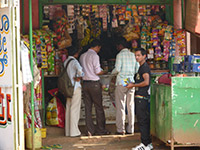
The Karnataka Health Promotion Trust asked BPF to help female sex workers, transgenders and men who have sex with men achieve a sustainable income and live a life of dignity.
Rejection, depression and desperation are something that stigmatized and ostracized sexual minority groups have to battle with on a daily basis. Living a life of dignity often remains a distant dream given the limitations society places on them. BPF’s award-winning livelihood innovation Market Oriented Value Enhancement (MOVE) was tailored to the specific needs of sexual minorities. The training programme was targeted at individuals between the ages of 18-50, who were running a small enterprise, eligible for financial support and were not involved with other training activities. The changes brought about included increases in monthly income, expenditure, personal assets and savings as compared to the baseline level as well as progress in stated personal aspirations. Another output was the MOVE manual to promote livelihoods for sexual minorities which is a practical guide to assist and replicate the MOVE process and will serve as an essential tool for future up-scaling of MOVE with these populations. One outcome of this innovation was to ensure future replicability by developing a manual for MOVE training that is tailored to the specific needs of MSM-T participants. BPF is happy to launch this unique manual and initiative that will serve as an essential tool for future up-scaling of MOVE with these populations.
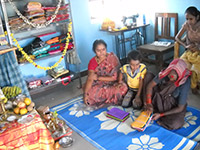
The Project aimed at training 120 participants from six villages in Dharwad taluk and about 60 businesses are expected to start by the end of the project. To date 160 people have completed the training and about 25 have already started the businesses. Another 35 businesses are expected to start in the next six months.
The project aimed at Knowledge Capacity Transfer to SSP trainers/women, towards which BPF conducted 14 days training on MOVE to develop course curriculum with the participation of existing entrepreneurs and staff in SSP’s working areas in Maharashtra.
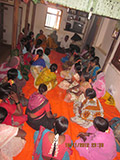
The 5-month project which began in November 2012 trained 34 participants in MOVE by BPF staff, 29 of these participants completed the training. By the end of the project 18 of the participants either went on to start their own business or scale up existing ones.
Thirty-four participants underwent MOVE trianing; 12 from Timmapur, 12 from Jekkinakatti, 5 from Mantrodi and 5 members of UAS staff. The training was conducted by BPF in partnership with the Department of Food Sciences and Nutrition, UAS, Dharwad. Twenty-nine participants completed the programme of which 18 went on to start their own businesses or scale up existing businesses. Ten of these businesses pertain to small millet products. Average incomes of entrepreneurs selling small millet products alone more than doubled from 850 INR to 2,113 INR. The other eight have added millet-based products as a second business. The new entrepreneurs were exposed to markets in Shiggaon and Hubli to enable them to expand their markets for millet products. All the participants have increased their income by up to 249%. The minimum income earned after MOVE was Rs 700 by Roopa Alagwadi; the maximum, Rs 5,700 by Shakuntala Kundagol.
MOVE Impact Small Millet Producers 1
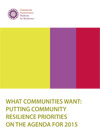
On behalf of the Huairou Commission and UNDP
This action research, conducted by the Community Practitioners Platform for Resilience in seven Asian countries, is an effort to capture the voices of community leaders and bring the resilience priorities of poor, disaster-prone communities into debates that will shape the new policy frameworks on disaster risk reduction to be launched in 2015.
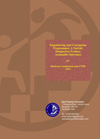
On behalf of the Huairou Commission and UNDP
Corruption is a major impediment to development and the achievement of the Millennium Development Goals. Undertaken in eight nations worldwide using several indicators and translators, this study documents the ways in which grassroots women in the developing world experience public-sector corruption. It voices their concerns and presents their recommendations for country-level anti-corruption initiatives. The study was launched by the UNDP at the International Anti-Corruption Conference organised by Transparency International in Brasilia in November, 2012.
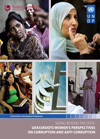
On behalf of the Huairou Commission and UNDP
The Huairou Commission and UNDP's Global Thematic Programme on Anti-Corruption for Development Effectiveness (PACDE) teamed up to undertake a study in 11 communities across eight countries spanning three continents. The study illuminates grassroots women's perceptions and lived experiences, bringing to the forefront grassroots women's voices to contribute to anti-corruption programming.
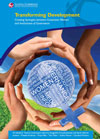
A compendium of best practices that illustrate how grassroots organisations have evolved strategies from global trends to include women in governance.
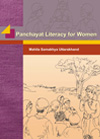
In collaboration with Mahila Samakhya, Uttarakhand
A toolkit to systematically build the governance capacities of women in the Panchayats.
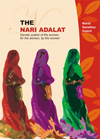
For Mahila Samakhya, Gujarat
Context, perspective and non-negotiable criteria for the setting up and functioning of the Nari Adalat or women's courts whose objective is to provide gender justice to poor women.
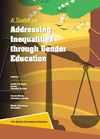
Mahila Samakhya, Andhra Pradesh, Karnataka, Kerala
A toolkit that addresses gender education through capacity building for master trainers at the state and district levels. These trainers subsequently train schoolteachers on gender equality in education.
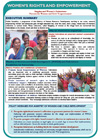
For the Ministry of Women and Child Development
Based on a one-year study of the best practices in grassroots women's empowerment in Mahila Samakhya, these messages include promoting synergies with rights-based women's collectives, recognising them as grassroots partners for women's issues, and recognising federations as building blocks for the holistic development of women.
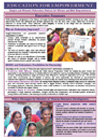
For the Ministry of Human Resource Development
Policy inputs to enable the Ministry to locate literacy programmes within women's collectives and embed literacy into the empowerment process, thereby increasing social and community insights into educational processes.
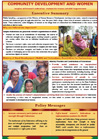
For the Ministry of Rural Development
Sanghas and federations, rights-based collectives of rural women's organisations, emerged as a result of the Mahila Samakhya programme of the MHRD. This policy brief, culled for the Ministry of Rural Development from a year-long study of the best practices of these organisations, recommends ways in which community participation can be increased by linking with federations as implementation partners.
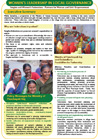
For the Ministry of Panchayati Raj
The primary agenda of all Ministry of Panchayati Raj (MoPR) programmes is to ensure collective empowerment through a bottom-up approach. This brief, based on a year-long study of grassroots collectives of the Mahila Samakhya programme, recommends promoting community-based governance mechanisms, recognising these organisations as grassroots partners for planning and involving them to engender governance.
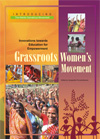
For DFID, India
A compendium that covers best practices and innovations in the Mahila Samakhya programme across eight states and showcases the icons among them. The core practices include (a) The Adult Literacy Programmes, that impart need-based literacy and numeracy (b) Nari Adalats (women's courts) that deliver gender justice (c) Mahila Shikshan Kendras (MSKs), residential schools for young adolescent girls, and (d) Kasturba Gandhi Balika Vidyalayas (KGBVs), a national programme which mainstreamed the MSKs. The innovations include (a) the Data Exhibition in Assam (b) the Panchayat Literacy Programme for Women in Uttarakhand.
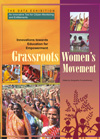
For the Ministry of Human Resource Development and DFID
The Data Exhibition was a tool created by Mahila Samakhya, Assam, to enhance accountability and transparency in Panchayati Raj Institutions. The initiative involved women's groups holding public exhibitions wherein real entitlement data was juxtaposed against official data of entitlements obtained by filing the RTI. This exposed the corruption in the system and helped people demand their entitlements. The study has been so well received that the National Women's Empowerment Mission is now piloting a programme to institutionalise this innovation nationally.
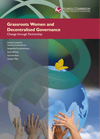
On behalf of the Huairou Commission
A compendium of best practices documenting grassroots women's initiatives in local governance in India, Kenya, Peru, Russia and the Czech Republic.
Sangeetha Purushothaman and Mukta Banerjee
The Global Dialogues programme was initiated by the Ford Foundation in 2002 to draw visibility and greater legitimacy to the area of human sexuality, and thereby influence decision-making. In evaluating the work of the South and South-East Asia Resource Centre on Sexuality, based in TARSHI, an NGO in New Delhi, this report analyses results, identifies effective and sustainable strategies, and examines how organisational development issues affect results.
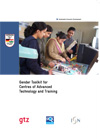
For GTZ, an Indo-German bilateral technical cooperation initiative
BPF has the capacity to engender a variety of areas - governance, corruption, resilience, climate change, energy, and so on. The primary objective of this study, commissioned by GTZ, an Indo-German bilateral technical cooperation initiative in 2007, was to develop a gender strategy to help expand technical opportunities for women. BPF researched technical training institutes across five states in India and found that open access alone does not boost the enrollment of women in technical and vocational education and training institutes TVETs. What is required is a deliberate gender strategy that involves active recruitment, adaption to the needs of women and dialogue on gender mainstreaming. We formulated a five-module gender toolkit centred on gender planning, budgeting, sensitisation, implementation of gender plans, and monitoring.
For the Task Force on Skill Development and Vocational Training, Planning Commission, Government of India
Acquired through broad consultative processes, these inputs focus on the inclusion of women and other excluded groups in vocational training. Its recommendations include the expansion of vocational training institutes, better outreach, more loans and scholarships, gender sensitisation of stakeholders and training for self-employment to make vocational training more inclusive.
On behalf of the Huairou Commission, commissioned by the International Union of Local Authorities
Sensitising local government to the need for mechanisms that allow women's effective participation in local decision-making is vital to good governance. This paper presents the perspectives of both grassroots women and local government. It highlights best practices of successful partnerships between women and local government and from these examples, outlines the principles on which such a partnership can be based, locally and globally. It simultaneously outlines gaps in areas of work and the basis for future partnerships from a grassroots women's perspective.
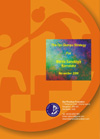
For Mahila Samakhya, Karnataka
In the Oni Gumpu strategy introduced by Mahila Samakhya, Karnataka, neighbourhood groups constitute a platform for information dissemination, community programme monitoring and addressing important issues. This paper builds a case for replicating the strategy through an examination of its objectives, process, capacity-building needs, cost effectiveness, impact and achievements.
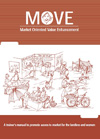
BPF gender/ livelihood innovation
Turning the poor into entrepreneurs can radically transform their standard of living and social status. BPF's Market Oriented Value Enhancement (MOVE) methodology teaches participants to understand and enter the market through an innovative tool called a Participatory Market Appraisal.
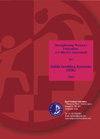
For Mahila Samakhya, Karnataka
An assessment of the growth of women's federations through their history, activities and feedback of their performance from women. This study was based on 32 federations formed by Mahila Samakhya, Karnataka, and assessed the need for capacity building to strengthen these federations.
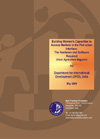
Urban Agriculture magazine, 2004
Livelihood initiatives often overlook the needs of landless women, who tend to be less mobile and encumbered by reproductive responsibilities. This article makes a strong case for addressing the issue by a) building their capacity to understand markets b) mobilising them into groups c) creating innovative financial instruments, and d) providing a marketing infrastructure.
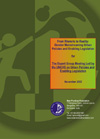
For the Expert Group meeting led by the UNCHS on Urban Policies and Enabling Legislation
A gender perspective of urban issues and women's initiatives that have emerged in response to them; a framework with policy implications for engendered governance and gender sensitive urban policies.
On behalf of the Huairou Commission, commissioned by The LIFE Global Programme, UNDP
A summary of the capacity building and support needs of grassroots networks attempting to build alliances with other institutions working to combat poverty. It outlines the role of government and donors in legitimising the influence of these networks so that communities can have a say in determining their own destinies.
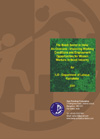
For ILO and Department of Labour, Karnataka
A comprehensive overview of India's beedi industry and the goals and expected outcomes of ILO's beedi sector programme. The report recommends a two pronged strategy of working with the community that includes a) mobilising female relatives of beedi workers into SHGs for alternative livelihoods, and (b) working with unions to improve the conditions of beedi workers.
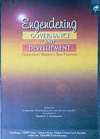
On behalf of the Huairou Commission
A compendium of best practices in local governance and community participation, these articles describe solutions created by grassroots women to their community issues in South America, Africa, Asia, Eastern Europe and the Mideast.
For the Women and Child Development Department, Government of Karnataka
This study reviews self-help group programmes and concepts, identifies gaps and offers recommendations for information and field initiatives in Karnataka. The overall policy to facilitate women's access to and control over resources, was written from the perspectives of three institutional actors in the field - government, banks and the NGO sector.
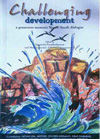
Community-based organisations of grassroots men and women possess a significant knowledge base that tends not to leave the local arena. Representing writings from the north and south, this book covers movements from North and South America, Africa, Turkey, Canada and Germany in an attempt to give grassroots community-based women's movements a voice and visibility. Since grassroots women leaders are very rarely the writers and owners of their own work, this book is an accomplishment in that it is their voices and those of other grassroots women that speak through it.